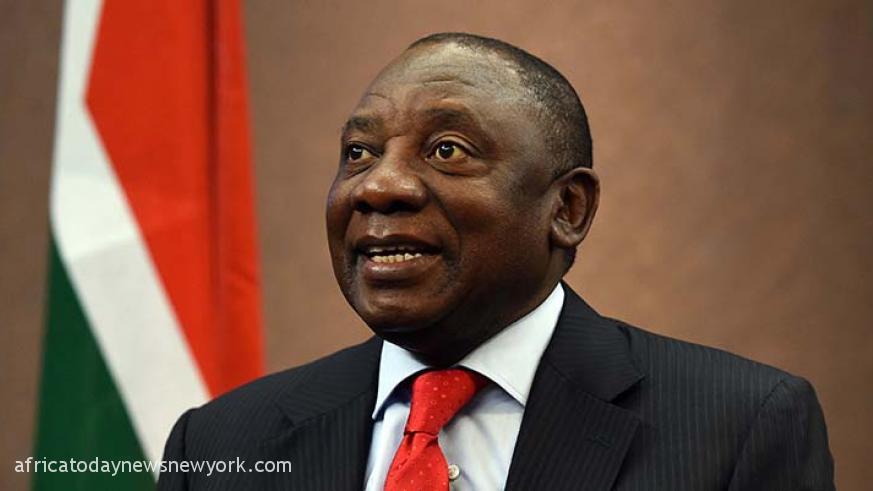South African President, Cyril Ramaphosa on Tuesday acknowledged growing public frustration with South Africa’s leadership and institutions, two days after miners booed and drove him from a May Day celebration rally.
Africa Today News, New York reports that Ramaphosa who a mining union leader under white-minority rule — was forced offstage and taken to a police armoured personnel carrier after miners shouted him down.
The protest took place during a ceremony organised by country’s largest union, COSATU, at a stadium in the northwestern town of Rustenburg which was televised.
‘I was… unable to address the gathering because workers there had grievances that they expressed loudly and clearly,’ Ramaphosa said in a weekly newsletter which was sighted by Africa Today News, New York.
‘While the main grievance appeared to be about wage negotiations at nearby mines, the workers’ actions demonstrated a broader level of discontent,’ he said.
Read Also: Anti-Migrant Protests: South Africa Not Xenophobic – Ramaphosa
‘It reflects a weakening of trust in their union and (COSATU) federation as well as political leadership, including public institutions,’ Ramaphosa said.
Poverty, inequality and joblessness run high in South Africa, nearly three decades after the end of apartheid rule.
Ramaphosa promised to take “necessary action to improve (workers’) lives and their working conditions.”
Meanwhile, the Congress of South African Trade Unions, COSATU, is a long-time close ally of the ruling African National Congress (ANC) party.
It described the interference in Ramaphosa’s address as “regrettable and unacceptable” but said the protest “to a certain extent, reflects the growing frustration among workers in South Africa.”
South Africa is the continent’s leading economic power but was hit hard by the Covid crisis, and unemployment is at a record 35 percent.
Tension in the labour market has fuelled anti-foreigner sentiment and sporadic demonstrations.
Analysts believe South Africa’s political leadership has suffered a slump in trust among the public at every class level, and that the decline has persisted for more than a decade.
Ramaphosa helped found the National Union of Mineworkers in 1982. After the end of apartheid, he entered the private sector, becoming a highly successful businessman before returning to politics, serving as vice president to Jacob Zuma.
He ascended to the presidency in 2018 after Zuma was forced out by mounting corruption scandals.
